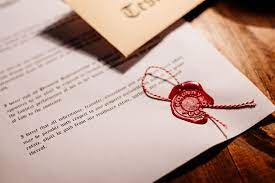Notaries witness, authenticate and prepare copies of documents to be used abroad.
Notarisation
Notarisation is the process of authenticating documents. The notary attaches a notarial certification to the document to authenticate and convert it to what is known as a “notarial act”. This process includes verifying your signature and identity, and witnesses the document when you sign it. The notary will also make sure that you fully understand the document you are signing. The notary will stamp or seal your signature.

Notarisation confirms the document’s authenticity and that it has met all legal requirements.
The certification process is used to verify that a copy is an exact, current and complete copy of the original. The notary is not verifying the content of the document, but he or she can confirm that they have seen the original. You may have to provide certified copies of your educational awards if you want to work abroad. For Notary Services London, contact https://bridgelawsolicitors.co.uk/notary-services-for-individuals/

Notaries aren’t the only professionals that can certify documents.
Legalisation through apostille
Apostilles are sometimes required to ‘legalise’ a document. Apostilles can be used to legalise documents that will be used in countries who are signatories of the Hague Convention. The apostille certificate is a document that the UK Foreign & Commonwealth Office attaches to your legal document, usually after it has been authenticated by a notary public.
Consular legalisation
Legalisation may also be required by the Consulate, Embassy, or High Commission Offices of the foreign country concerned. It is called a ‘consular legalisation’.
Various countries have different approaches, which can be confusing. Others will accept notarisation, while others require different levels of legalisation. Your notary will know what is required, and they will have experience in dealing with various authorities and organisations.






+ There are no comments
Add yours